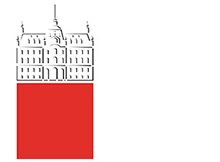Doctoral study in the field of animal science is intended for educating a wider circle of experts for research, development and pedagogic work in the fields of quantitative genetics, selection, etology and technology of breeding animals. Knowledge of the impact of breeding animals on the environment and quality of animal products is also included.
The field of selection deals with questions of obtaining information for the genetic assessment of animals in increase, experiments or laboratories. It includes knowledge from the field of information technology, which we use in obtaining, communicating, storing and processing data in data collections. Contents for forecasting genetic values, from both phenotypic and genetic information, determining bio-economic theses, procedures of selection and monitoring the effects of individual measures on a population, are stressed. The field also covers knowledge of monitoring and directing small populations, which are met both with local populations as well as in specialised nuclei.
The field of etology is based on familiarity with the body language of animals, since these signs unable us to recognise the feeling of animals and interpret changes in the state of health of individual animals or groups. Physiological research is also often connected with observation, in order better to understand the responses of animals and to make use of them in overcoming deficiencies in various environments and systems of breeding. The aim of such research is increasingly connected with monitoring the effects of elements of feeling in breeding animals.
The technology of breeding animals has greatly changed recently because of changes to the environment, awareness of the negative influences of breeding animals in the environment, stricter etological standards, and greater market and economic pressures. With the increased use of domestic sources in the care of animals, we reduce the negative impact on the environment but, on the other hand, it demands deviation from general recipes in breeding animals and the development of friendly technologies adapted to the environment. In work it is necessary to adapt to natural, social and market conditions, and solutions must guarantee sustainable development. Research in this field is therefore often interdisciplinary.
In all fields, the development of basic knowledge and the transfer of this into practice are stressed. Both in studies and in individual research work, we stress international cooperation and cooperation with users. There are possibilities of employment of graduates in educational institutions, public services, animal breeding research, development and professional institutes, specialised advisory services and development departments of agricultural, food and pharmaceutical companies.
| COORDINATOR | DEPUTY COORDINATOR |
|
assist. prof. dr. Dušanka Jordan
|
assist. prof. dr. Dušan Terčič
|


